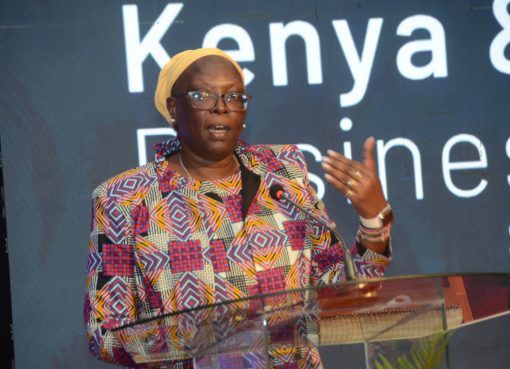For over a decade, Mrs. Millicent Achieng Odira, a resident of the Rongo sub-county, has been actively involved in the construction of Improved Cooking Stoves (ICS). Her end dream has been to ensure that cooking will no longer hurt the already fragile environment in the wake of the climate change.
Together with a group of women who received training from a Korea based NGO called Green Climate Fund (GCF) back in 2013, they formed a group called ROSPID that advocates for the conservation of the environment through the use of energy-saving Improved Cooking Stoves (ICS).

The ROSPID group aims to effect an irreversible market transformation that will significantly increase ICS production and sales with the ultimate aim of helping to mitigate climate change and the environmental degradation caused by heavy reliance on forest biomass for cooking.
Through her hard work, Millicent registered a company under the name Mildra Green Energy (MGE) based in Rongo town, concerned with training women and young adults on how to construct Improved Cooking Stoves as well as provide employment opportunities.
As per the 2019 Census, Kenya has a populace of more than 45 million individuals of which 55.1 per cent of the households directly relying on firewood as cooking fuel.
Besides this, the general poverty levels in the country are unfortunately exacerbated by their current cooking practices – that is; open fires that require the time-consuming labour of collecting firewood of which, the inefficient traditional cooking stoves (three stones) necessitate the expense of buying large amounts of charcoal. Such methods also cause smoke-related respiratory illnesses which in turn compound household poverty.
However, Millicent says that a few households have now embraced the use of ICS across the country, but still, the excessive need and use of fuel timber, are leading to forest depletion that have seen a huge percentage of the environment damaged and caused poor wellness due to Indoor Air Pollution (IAP) and destitution.
By presenting these Improved Cooking Stoves, Millicent is optimistic the country will save up to 50 per cent of the current forest consumption on wood fuel. The use of ICS will help reduce over-reliance on firewood consumption as it consumes less firewood compared to the traditional open fire cooking using three stones.
Economically, the construction of ICS has empowered the local ROSPID members financially since the beneficiaries have alternative sources of income and the venture has certainly boosted their revenue, wellness, and security.
Millicent says that the construction of an Improved Cooking Stove has helped her pay school fees for her children, take care of her family as well as build her current house where she lives with her family
Despite its importance, the construction of ICS still faces challenges as only few have the skills required in molding the stoves.
“Through this construction work, I have traversed the whole country but there is lack of enough skilled manpower in the construction work. We need to train more people.” Millicent recounts.
She added that the growth of the ICS sector will create a wave of positive growth across local economies, particularly in terms of providing job opportunities across the value-chain, in roles such as sales and delivery.
Millicent challenges the women to get out and work hard, refrain from choosing jobs since there is no work for specific gender. Millicent says she is willing to offer training countrywide if approached.
By Polycarp Ochieng and George Agimba





